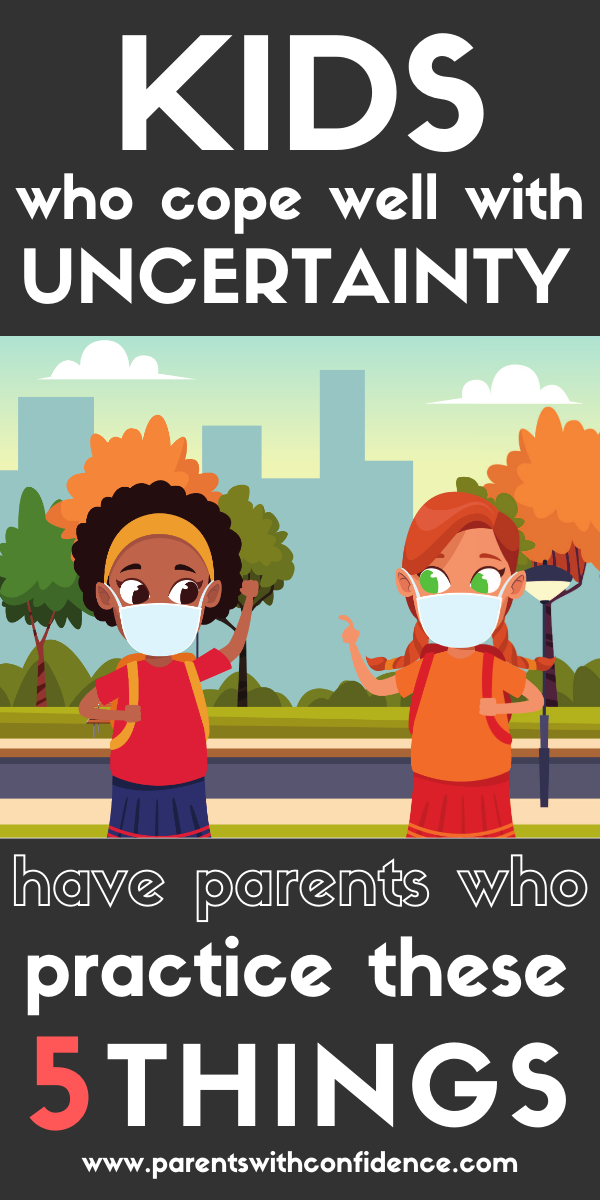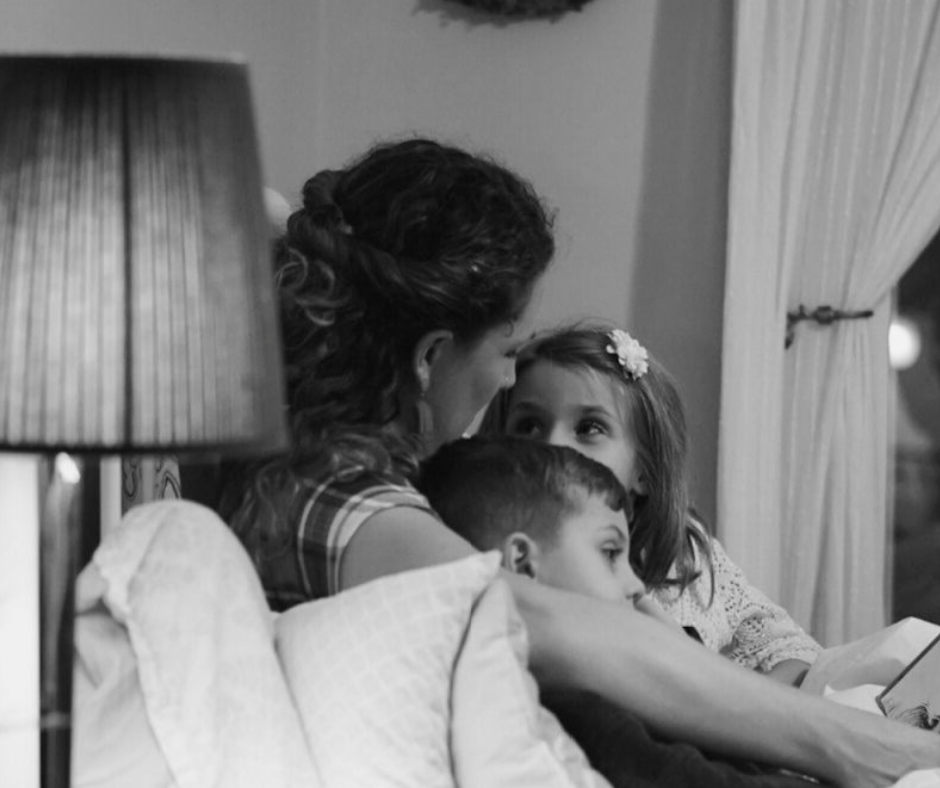5 Things Your Child Actually Needs to Have a Great Schoolyear
Inside: Parents will learn five simple but powerful strategies to help their children maintain good emotional health by preparing them for the school year ahead.
Do we still have to wear masks at school this year?
Can I play with all the classrooms at recess now?
How long will we have to stay home and do school online?
These are only the tip of the ‘question icebergs’ that surround many families’ discussions of what might take place during the upcoming school year.

While each child’s learning environment will look different based on their family’s needs and the geographical area they’re located, there is one variable that all children have in common this Fall, a cloud of uncertainty that continues to hang over us.
Why is this important to address? Because biologically, uncertainty wreaks havoc in the brain of your child affecting both their academic learning as well as their emotional well-being and mental health.
Basically, uncertainly equals anxiety, and an anxious brain is a brain NOT ready to listen, learn, socialize, and focus throughout the day.
The difficulty human beings have handling uncertainty isn’t particularly surprising given the fact that security, safety, and predictability are all very basic human needs.
It’s not hard to see that humans value control above almost all other capacities. We admire others who are in control, and we congratulate ourselves as we learn to control our personal circumstances (or have the illusion that we can control them).
The effect of uncertainty on the human mind has been studied at length, and time after time the results are the same; humans would actually prefer knowing a negative consequence will happen to not knowing if the consequence will be positive or negative.’ Pretty crazy right?
The good news is, this same research also shows that while humans may be averse to uncertainty, we can learn to live within it, and your child can too.
How to Help your Child Cope with the Schoolyear Ahead
While you can’t prevent uncertainty in your child’s life, you can help to equip them with powerful tools that will allow them to cope and thrive within it.
Here are 5 simple ways you can help your child to feel more confident and prepared to head into the uncertain schoolyear ahead.
Pull them into the conversation
If you ask yourself how many important conversations you have about significant life events relating to your child’s life, how many of these conversations have you included your child in?
As your child gets older and has the ability to verbalize and think critically about the topic at hand, it’s time to show them the respect of asking their opinion.
This doesn’t mean they get the final say. After all, you’re the leader of the family and ultimately decide what’s best.
It does mean that you’ll gain a better understanding of your child’s point of view on the matter and can then work to collaborate and gain a mutual understanding of the final choice moving forward.

Check-in with them often
If there was ever a time to normalize emotions, now is it. The world is emotionally charged, providing the perfect opportunity to teach your child about different emotions and healthy ways they can cope with them.
This happens simply by asking your child often, “how are you doing today? How have you been feeling?” (these emotions flashcards are a great resource for this)
Read books and offer visuals depicting different emotions and normalize and validate all of their feelings (even the ones that make you uncomfortable). Listen, listen, listen.
When your child has an outlet for their emotions not only will they feel more connected to you, they’ll be preventing anxiety and depression that can creep up when emotions are bottled up.

Give them outlets
In addition to talking about their emotions, your child’s stress needs a physical outlet as well.
Providing opportunities each day for activities that act as natural stress relievers is a guaranteed way to help them blow off steam and lighten the load their nervous system is carrying.
Some activities that are powerhouses for relieving stress are physical exercise, doing anything out in nature, and having periods of time for them to choose what they play (not including screens).
Sounds simple, but building these activities in daily takes dedication, planning, and prioritizing on your part which is often easier said than done.
Deliver the plan with confidence
While coming up with a plan for the upcoming months has likely left you feeling less than confident many days, when you’re ready to deliver the news to your child, it’s time to put your game-face on.
It’s easy to forget that you set the emotional tone for your child when you begin an important conversation.
If you’re feeling super uneasy or anxious, that’s your cue to get your own confidence and emotion ducks in a row, before communicating with your child.
Honesty with age-appropriate information is good, but without your child feeling an underlying sense of safety and security from you, it will be hard for them to find confidence in the uncertainty.
Focus on the positives and make sure they walk away with the clear message that “We can get through anything together”.
Take care of your own emotional needs
The irony is, the more you need ‘self-care the harder it is for you to put it into place. Why? Brains under stress have a harder time seeing the big picture and applying reason and logic.
Your child picks up on so much more than the words you use when sitting down to have a discussion. They pick up on your emotional energy, presence, tone of voice, and demeanor.
It’s ok for your child to see you face stress and adversity while experiencing real feelings, but it becomes overwhelming to your child if it becomes commonplace and they feel the captain of their ship is not ready to be at the wheel.
Create boundaries with your child and make sure they’re not absorbing ongoing exasperating phone calls and conversations about stressful topics.
Find outlets for your stress and work through your own emotions so they’re not inadvertently dumped on your child.

Developing character and confidence through navigating uncertainty
While the months ahead are likely not what any of us would have chosen, it’s an opportunity to learn and teach a powerful lesson. While we often can’t control the circumstances around us, we can still choose to control how we respond to it.
With your support, your child can come out of the uncertain year ahead with more confidence and resilience than they had going into it.
Want more guidance on how to raise an emotionally healthy child who will live their best life? I’ve created a free 5-day email parenting course just for you.
Sign up below to gain life-changing insights and strategies on discipline without damage, helping your child manage their emotions and the best way to get your child to listen.
75 Awesome Calm Down Strategies for Kids that Work
10 Anxiety Symptoms in Children That Most Parents Miss
Parenting an Angry Child? 10 Possible Reasons Why
10 Simple Everyday Ways to Improve Your Child’s Behavior and Mood
The Best Way to Help a Child Deal with Anger Now (and throughout life)






